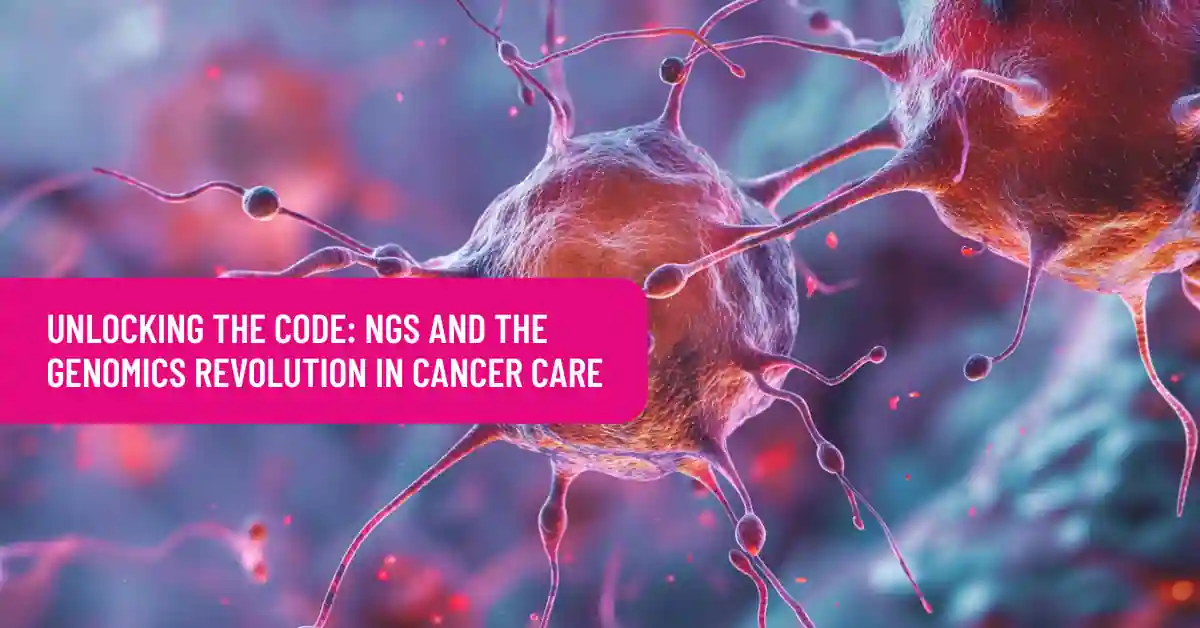Ahead of the Exciting Session on NGS at VIPOS 2025
In recent years, the world of cancer care has undergone a quiet but transformative revolution, powered not by new drugs alone, but by our ability to understand the genetic code of tumors themselves. Central to this transformation is Next-Generation Sequencing (NGS), a technology that has opened doors to personalized, precise, and powerful cancer treatment strategies.
What is Cancer Genomics?
At its core, cancer is a disease of the genes. Mutations in DNA can cause cells to grow uncontrollably, evade death, and spread through the body. These mutations may be inherited or acquired during a person’s lifetime. Understanding which genes are altered and how, can provide crucial insights into how a cancer behaves and how best to treat it.
This is the promise of cancer genomics: decoding the genetic blueprint of a tumor to tailor treatment to each individual.
Enter NGS: Next-Generation Sequencing
Traditional genetic tests looked at one or two genes at a time. But NGS changes the game by allowing scientists and doctors to read millions of DNA fragments simultaneously, across dozens to hundreds of genes, or even the whole genome.
NGS offers:
* Speed: Large sections of DNA are read in hours or days.
* Depth: It can detect even rare mutations present in a small number of tumor cells.
* Breadth: Panels can screen for mutations in multiple cancer-related genes in one go.
NGS can be done on a tumor biopsy or even through a blood test (liquid biopsy), detecting tumor DNA that circulates in the bloodstream.
Why NGS Matters in Cancer Care
NGS isn’t just about identifying mutations, it’s about actionable results:
* It helps oncologists choose targeted therapies that act on specific genetic mutations (like EGFR mutations in lung cancer or BRCA mutations in breast/ovarian cancer).
* It can predict resistance to certain treatments.
* It guides decisions about immunotherapy by measuring markers like TMB (tumor mutational burden) or MSI (microsatellite instability).
* It helps detect hereditary cancer syndromes, which can impact family members as well.
Modern Genomics Testing: Beyond NGS Alone
NGS is just one piece of the genomics puzzle. Modern cancer diagnostics now include:
* Whole-Exome Sequencing (WES): Looking at all the coding genes in the genome.
* Whole-Genome Sequencing (WGS): Reading the entire DNA of a person or tumor.
* RNA Sequencing: Studying gene expression patterns.
* Methylation Profiling: Understanding how genes are turned “on” or “off.”
Combining these methods can give a more holistic view of what drives a cancer and how best to treat it.
Challenges and the Road Ahead
While the technology is powerful, challenges remain:
* Not all detected mutations have approved targeted therapies yet.
* Interpretation of results requires expertise and this is where molecular tumor boards play a key role.
* Accessibility and affordability of NGS remain concerns in many parts of the world.
But the field is evolving fast, and global collaborations are making genomic data more accessible and useful.
NGS in Focus at VIPOS 2025
At the upcoming VIPOS 2025 Precision Oncology Summit, a dedicated session will delve deep into Next-Generation Sequencing in clinical practice. Experts will discuss:
* How to choose the right genomic test for the right patient.
* Case-based insights into how NGS is changing treatment decisions.
* Real-world challenges in implementing genomics in oncology clinics.
Whether you’re a healthcare professional, a student, a patient, or simply someone interested in the future of medicine, this session will illuminate how cancer care is no longer one-size-fits-all, thanks to the power of genomics.
Conclusion
Genomics is not just the future of oncology. It’s the present. With technologies like NGS, we are entering an era where cancer treatment is guided not just by the tumor’s location, but by its unique genetic signature. As we look ahead to VIPOS 2025, it’s clear that understanding the language of DNA is no longer the domain of researchers alone but essential knowledge for anyone involved in the fight against cancer.


